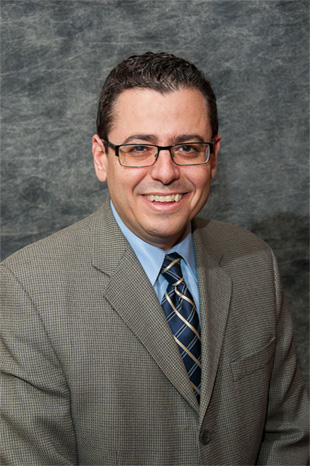October 02, 2023
Professor Leads Training in Spain for Music-Centered Assessment
 An assessment model John Carpente developed at The Rebecca Center for Music Therapy at Molloy University, where he is founder and director, has led him to deliver training sessions around the world. The latest one took place May 19-21 at a clinic in Seville, Spain.
An assessment model John Carpente developed at The Rebecca Center for Music Therapy at Molloy University, where he is founder and director, has led him to deliver training sessions around the world. The latest one took place May 19-21 at a clinic in Seville, Spain.
Carpente spoke to an international assembly including participants from Portugal, Ecuador and Argentina as well as the home country. Since developing the Individual Music-Centered Assessment Profile for Neurodevelopmental Disorders and publishing the assessment manual a decade ago, Carpente has made similar presentations throughout Europe, South America and Australia. He is invited to lead a training in Florence, Italy, next year.
“They learn the theory and the model,” said Carpente of his daily approach in Seville. “Then they learn the actual practice, procedures and protocols of the assessment instrument. It’s combined with experiential and didactic teaching.”
The assessment is based on interactive music-making. The Rebecca Center’s clients identify as neurodivergent, making it difficult for them to communicate.
Music, Carpente explains, “bypasses language and has the capacity to reach people in a way that can provide an experience for them to be relational and communicative, through instrument play and/or through vocal play and even through movement to music.”
During a session, the music therapist creates music and tries to make it relational to what the client plays on his instrument.
“The client doesn’t need to know how to play music,” Carpente said. “They can go to a drum and start banging on it. It’s our job to create music around the drumming and then to assess if the client understands that we are connected to them.”
They assess whether the client looks up, can synchronize to the tempo being played and maintain a basic beat.
The assessment model guides the music therapist in how to analyze “the musical events happening in the context of social communication,” Carpente said.
It provides information that will inform the therapist’s music to maximize the interaction with the client, he said. For example, the client may seem more receptive and relational when the music is played fast and loud.
The music assessment is used with many of the 80 families that visit The Rebecca Center each week. The center, which has a dedicated professional staff, serves as an internship placement site for Molloy’s undergraduate and graduate music therapy students, who learn to use the model. Students were involved in some of the research and co-authored two of the studies.
Carpente uses the analogy of ripples emanating from a pebble tossed into a pond to describe the good work that begins at the center. Students who have graduated go on to train other students when they establish their own clinical practices.
“They carry on the philosophy of how we work at Molloy and The Rebecca Center,” he said.
The graduate music therapy degree features a one-credit Rebecca Center research clinical practice course required of all incoming students. “We go through the research and assessment model in detail,” said Carpente, who teaches the course. The class offers an overview of the center, including an introduction to the clinical work there.
The Rebecca Center has been a personal mission for Carpente since 1999, when he established it as a 501c3 with a board of directors. At the time the center was operating out of a church basement. Named for his grandmother, its approach underscores her principles and way of living, he said.
In 2001-2002, Carpente, an alumnus of Molloy, inquired if the university would like to bring the center to campus. It continued to operate as a separate entity until 2007-2008, when an agreement with Molloy was reached. Carpente began as a full-time Molloy faculty member in 2009, after receiving his doctorate.
The Rebecca Center is also conducting a four-year, $90,000 EEG music therapy study funded by the National Endowment for the Arts. It studies brain scans taken before and after a 12-week course of music therapy. The center is collaborating with Molloy’s Department of Communication Sciences and Disorders as well as the University of Tennessee’s speech and language lab.
A new $10,000 research grant, from the Interdisciplinary Council on Learning and Development, will soon lead the center to a study on coaching parents to play with their kids. The focus is about understanding how such play can increase engagement, reciprocity and social communication. The study, which is not music-based, is expected to commence once the contract is finalized.
Another Rebecca Center program is the annual Unity Through Diversity: Celebrating All Abilities in the Arts event, featuring people of all abilities, which draws 300 people to Madison Theatre each spring. At this year’s program in April, Molloy president James Lentini played tunes on guitar and was joined by different participants.
The Rebecca Center staff work with students from three or four school districts as well as clients from community centers on Long Island. The center has grown “exponentially” and there is currently a waiting list for clients, Carpente said.
“It has a pretty strong name in music therapy and is a great recruitment tool,” Carpente said. “Some people will come to Molloy just because of that.”